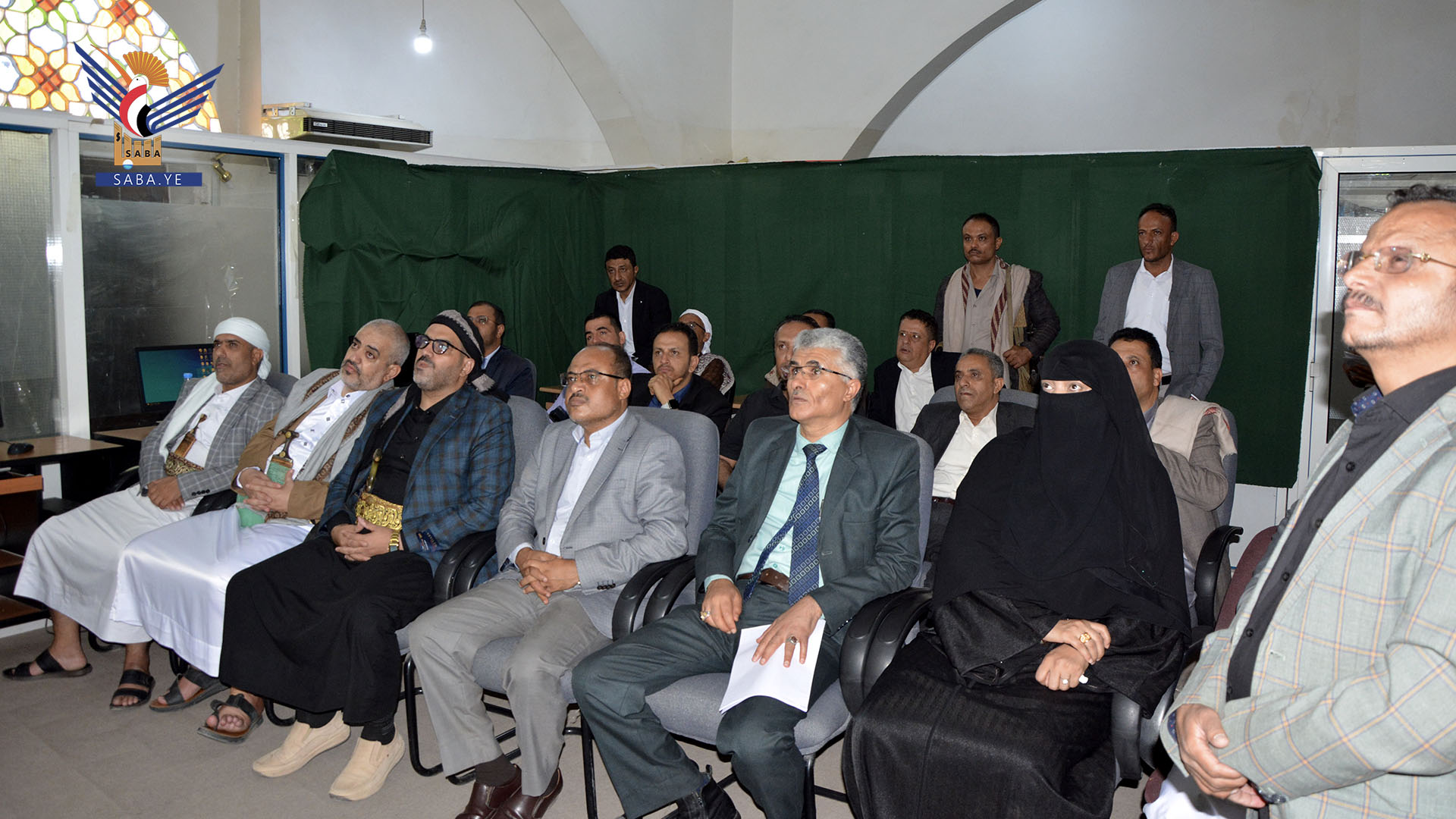Sana'a - Saba:
The Minister of Justice and Human Rights, Judge Mujahid Ahmed, inaugurated on Sunday the electronic lawsuit and services portal, which will be implemented in newly established courts in New Sana'a, Public Funds in Sana'a Province, as well as the Endowments and Agriculture Courts in the capital.
During the launch ceremony—attended by the ministry’s financial affairs official, Judge Ahmed Al-Kahlani, the courts’ official, Judge Ahmed Al-Jarafi, and heads of the concerned courts—the Minister of Justice described the system as a major turning point in registering and processing cases, as well as notifying involved parties, whether in civil or criminal lawsuits.
He emphasized that this system marks a rapid step toward the digital transformation and automation of court operations and electronic notifications, streamlining procedures from case registration to notifying disputing parties.
Judge Mujahid noted that the system, accessible via the electronic lawsuit portal (https://judg.moj.gov.ye:8065), will curb exploitation and corruption related to document copying or case file handling, as it establishes a direct link between the court and the defendant. Defendants can submit their data and responses, and if legal fees apply, they can pay them electronically through the court’s revenue system.
He added that these measures will be available to citizens to reduce procedural delays and address irregularities in criminal, civil, commercial, administrative, and other lawsuits.
The system aligns with Article 105 of the Procedures Law, aiming to curb malicious defenses related to legal standing and ambiguous claims. It also helps eliminate corruption, organizes case files chronologically, facilitates access to case documents, enables judges and lawyers to review case details efficiently, and ensures data security with high standards of accuracy and confidentiality.
Meanwhile, the financial affairs official at the Ministry of Justice and Human Rights stated that the electronic lawsuit portal saves litigants time, effort, and money, allowing them to obtain case file copies without additional fees.
He described the project as the result of continuous efforts by engineers, technical and administrative staff, under the direct supervision of the ministry’s leadership, as part of a broader vision to modernize the justice sector’s digital infrastructure.
During the launch, Osama Abdulkhaleq Sharafuddin, Director of Websites Management at the Judicial Information Center, demonstrated the lawsuit system’s portal, which includes multiple pages for creating, processing, and printing lawsuits and responses, making them accessible to citizens and lawyers.
The project aims to develop and promote electronic judicial services, enhance court efficiency, facilitate access to case data, and reduce transaction processing time through a unified and secure information network. This allows citizens to interact directly with the judicial system without the need for in-person attendance.
This project is among the most prominent technological achievements the ministry seeks to fully realize as part of its comprehensive digital transformation plan. It aligns with modern advancements, strengthens the judiciary’s relationship with citizens, and contributes to building a modern, inclusive justice system that meets the aspirations of Yemeni society for effective, swift, and secure justice.

| more of (Local) |




